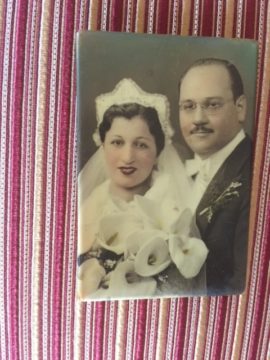by Barbara Fischkin

Again, I thought about changing my name.
I dreamed about publishing essays under a new byline. I tried out pseudonyms for my next book. I wrote down alternate names, said them out loud. A name change would make introductions easier. Now, when I extend my hand and say “Fischkin,” people look at me funny, as if I might be holding live bait.
I can live with Barbara. As a first name, it is dated. But Barbara will come back in style. First names do. I was almost named Benita. Benita Fischkin. Think of that. My mother loved that name, until a friend said a cute nickname for me could be Mussa—close enough to Mussolini.
That was all my mother Ida Siegel Fischkin had to hear. She was a passionate supporter of the State of Israel, a lifetime Hadassah member and a child survivor of an antisemitic pogrom. Benita went down the drain. As a little girl, bored with Barbara—too easy to spell—I asked my mother if she had ever wanted to name me something else.
“Benita,” she said. My mother hid little from me.
Wow, I thought, wishing she had gone through with it. A name like that dripped with fame, fortune and beauty.
Benita as a baby name for a newborn girl must have been making the rounds of pregnant mothers in our Brooklyn neighborhood, circa 1954. Very odd since this was less than a decade after World War II. My guess: When it came to villains, Hitler was the main event. I bet no one ever said: “For a boy, how about Adolph?” Read more »
